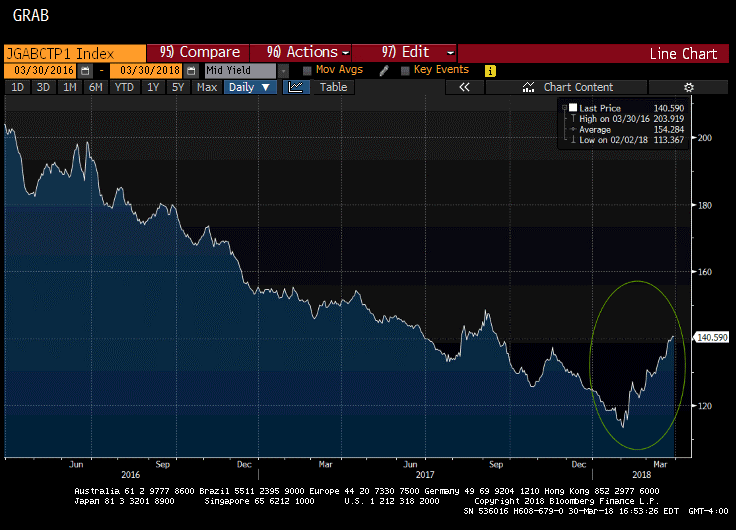From a purely qualitative perspective, equity markets felt worse during the second-half of March than at any point since China loosened its currency peg and crude dropped below $40/bbl back in 2015. Market breadth deteriorated, and not coincidentally there was a fairly clear shift by quantitative trading models to sell momentum-style equities, after two years of net buying. This latter point was most plainly evidenced in Amazon’s and Tesla’s share prices, both falling ~15% on no specific news.
US trade rhetoric and Facebook’s data breach are easy, recent catalysts to blame. I think the real cause, however, is simply that credit spreads are rising for technical reasons, while being misinterpreted as rising for fundamental reasons.
Following the tax change in December, the major US companies holding significant overseas cash promptly proposed and confirmed capital allocation plans with their Boards. They disclosed these plans to investors during Q4 reporting last month, and with that out of the way, they are now diligently executing by beginning to repatriate the cash. A significant amount this cash is invested in investment-grade, US corporate bonds. With a very large pool of cash now exiting this asset class, credit spreads have risen relatively sharply (see chart below).

Source: Bloomberg
Historically there has been an intuitive, negative correlation between credit spreads and equity prices: rising credit spreads = a sign of rising risk = lower equity prices. This time, however, is very different: rising credit spreads = cash coming home = better returns on and of capital. In equity markets that are heavily influenced by quantitative investing models, I would argue that we are witnessing algorithms committing the classic human mistake of confusing correlation for causation. Given the on-going, very strong economic backdrop, there remains significant upside for equities over the balance of 2018 and into 2019, the current “ugly feeling” market notwithstanding.
Within this context, the S&P was up 1% in CAD for the quarter (down 1% in USD), while the TSX was down 5%.
